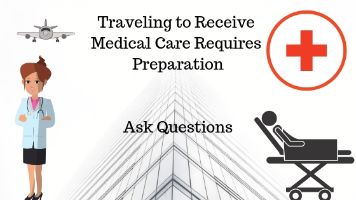Senators like Rand Paul are going to Canada to competitively shop and save on care. Patients seeking tips on how to lower costs on past bills can save and receive specialized care when they travel beyond borders for health services. The growth in international medical travel is due to improved availability of health technology, decreasing costs for travel and advertising by companies wishing to attract patients. Treatment may span the full range of medical services, but most commonly these services includes dental care, cosmetic surgery, elective surgery and fertility treatment. A competitive market for health care can help control medical spending and increase access by introducing patients to new locations and lower costs for care. However, medical travel involves additional risks, compared to obtaining treatment domestically. If complications or adverse outcomes occur, additional expenses are likely and insurance companies may not be willing to cover these costs.
Looking up and getting pre-approvals for care when traveling internationally is key to receiving cost effective global health care. Also, understand that not all industry standards and licensing are the same when you travel abroad so it will be very important to research the physician and facility. The research phase in the search for care is when comparing prices is possible and medical insurance advocates can help negotiate care and reasonable payment plans are arranged. Being specific when organizing these trips makes it feasible.

- Where does recovery happen after the procedure?
- What meals are provided?
- What transportation restrictions will I have?
- Will I be able to leave the facility?
- What are the amenities onsite?
- What comes with my package?
- Can the procedure be completed in one visit to the country?
- What are the payment options?
- What are insurance plans for international travelers?
- Do I need someone one with me?
